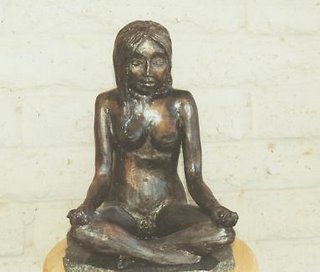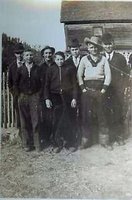 Whether you write fiction, non-fiction, a blog, paint, or sculpt, there is no way that you are not influenced by everything you have experienced-- and that means read or saw. There is a difference though between influence and copying. This last week I read about the plagiarism of Kaavya Viswanathan, the Harvard undergraduate who wrote 'How Opal Mehta got Kissed, Got Wild and Got a Life.'
Whether you write fiction, non-fiction, a blog, paint, or sculpt, there is no way that you are not influenced by everything you have experienced-- and that means read or saw. There is a difference though between influence and copying. This last week I read about the plagiarism of Kaavya Viswanathan, the Harvard undergraduate who wrote 'How Opal Mehta got Kissed, Got Wild and Got a Life.'I would guess, not knowing for sure, that Viswanathan got caught in her own net of deceit. As I have understood what happened there, she submitted a book she had written to a consulting firm who helps students get into Harvard for a fee. The consultant was so impressed that she submitted it to a major publishing house, who was equally impressed and published it. It wasn't until a fan of another author read it and compared paragraphs that the many many nearly exact similarities came out. The young author said-- (paraphrased) I was such a fan of this earlier work, that I was subliminally influenced. Ridiculous (not paraphrased). When you compare the wording, the woman had to have copied the earlier work, changing just a bit and maybe never planned it would be published when she began. She started out just wanting into Harvard.
She's certainly not the first, nor will she be the last. The problem is discerning where is it violating a copyright and where is it taking an idea and growing it-- as a court again decreed Dan Brown did with 'DaVinci Code.' Copyright laws deal with this but clearly publishers can't and don't check every work to be sure it's not infringing on someone else. Each artist/writer should have a sense of ethics to at least not deliberately copy.
I know some of my art has been influenced by earlier works that I have seen but did my own take on. I have never stolen a character, a plotline, wording, painting, or sculpture because, besides the ethical considerations, it would take away the reason for doing creative work to begin with-- turning creation into craft. Part of the difficulty in making art work is the composition and if you take what another artist used, you just lost the chance for your own interpretation.
Copying has been for centuries a teaching method used by some where the student copies the masters. Nothing is wrong with that as a way to understand how they used lighting, composition, to learn the basics. Where it becomes wrong is to sign it as an original creation of your own or, worse yet, with their name on it.
In writing, there are no new plots, even Shakespeare was accused of copying, but to literally take paragraphs and rework them or use fully developed characters changing only their names, that's plagiarism.
A few years back, a well-known writer of romantic fiction got her name besmirched when it was discovered, again by other readers not the publishers, that some of her books were too closely copying the work of an even more famous author. Her excuse was she was pushed for deadlines. She was humiliated as she deserved to be. Possibly she had little by little been doing that and finally it just got to the point where it was blatant-- cheat a little and the next time is easier.
For bloggers, the same issues arise. You read something, see a certain photograph and are influenced by it-- which to me is a compliment to the originator and does not require mentioning where it came from, which you might not even know. So many blogs are putting out the same themes that similarities abound, and they are not plagiarism. This is just my opinion, of course; but if someone sees something on my blog and likes the idea and expands it to theirs with their own twist, I would be pleased-- whether I ever knew they had done so or not. If they used my exact words or photo with it, I would not be.
(Sculpture is mine, titled Hozho-- a Navajo word which can be hard to define but one of its meanings is seeking truth and balance.)















































